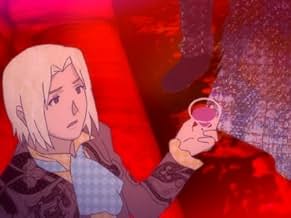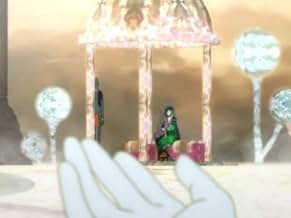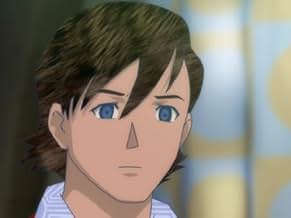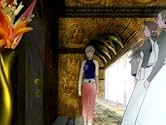Initially, what attracted me to Gankutsuou, was the idea of an Anime version of Alexandre Dumas' "Le Comte de Monte Cristo," but upon seeing the previews, I fell in love with the whole concept. The art, to say the least, is breathtaking, if not revolutionary; to that, the animation is flawless as well - one can only guess at the expense that went into creating such a visual marvel. While Gankutsuou doesn't follow Dumas' story as religiously as some would have it, what is important is that Dumas' intent in the story was held sacred. All too often is Edmond Dantes portrayed as being right in his quest, a true hero; nothing could be farther from the truth. Dumas' Dantes was a Satanic Hero like no other, if only perhaps Heathcliff from Bronte's "Wuthering Heights." Cruel, malicious, and bloodthirsty, Dantes is one with whom the audience is meant to sympathize and pity, while at the same time despise passionately. We can understand his motives, even support them, though we know innately we shouldn't condone them; Dantes is, in his truest nature, the incarnation of both ultimate love and ultimate hate, and was Dumas' tool to show that there is little difference betwixt the two. Gankutsuou stays true to this endeavor of Dumas' in all ways. The Count is everything he was in the novel - to both men and women, he held an (for lack of a better term) erotic visage about himself, something men wanted to aspire to, and women fell to. Frigid, calculating, with a gift to bend the wills of others, Dantes proved that one who has nothing to lose, yet does not allow himself to sink into depression (but rather finding purpose for your life) and thus has no fear of death or repercussions at all, is the most alluring; people are drawn to such darkness, such demonic power. But the beauty of this story doesn't stop simply at the creation of the ultimate sinister character - to create such a character is simple; what Dumas did, and Gankutsuou respected and embellished upon, was that despite the obvious horrific nature of the character, his reasons for being so are understandable. Aristotle said that one cannot create a truly tragic character without establishing fear and sympathy within the audience first; without Catharces, tragedy has no impact. While watching the story of Gankutsuou unfold, we begin to wonder if we, too, aren't capable of such atrocities, especially if under similar conditions. In our society, we sympathize with, if not often condone secretly, crimes of passion; but to what extent can we stretch out sympathy? Perhaps revenge of this nature is too extreme, that the Count is wrong in his hellish plans; but if we were betrayed by our best friend in so horrible a manner, who can say that, given the opportunity, we would not do the same, if not worse? Sympathy we have for Edmond's position; but fear becomes the all-consuming emotion we have while watching this, as we come to realize the extent of the atrocities we ourselves are capable of, given the chance and motive for them. For any Anime fan, or for any fan of cartoons or Dumas' works, Gankutsuou is by far one of the most astounding pieces you will ever see: true to the nature of the book like no other screenplay has been, and breathtaking in its visual nature, and musical score (opening theme not withstanding), Gankutsuou is a must-see, a beautiful testament to the power of hope and love, as well as an unmatched plunge into the darkest parts of the human soul.
































